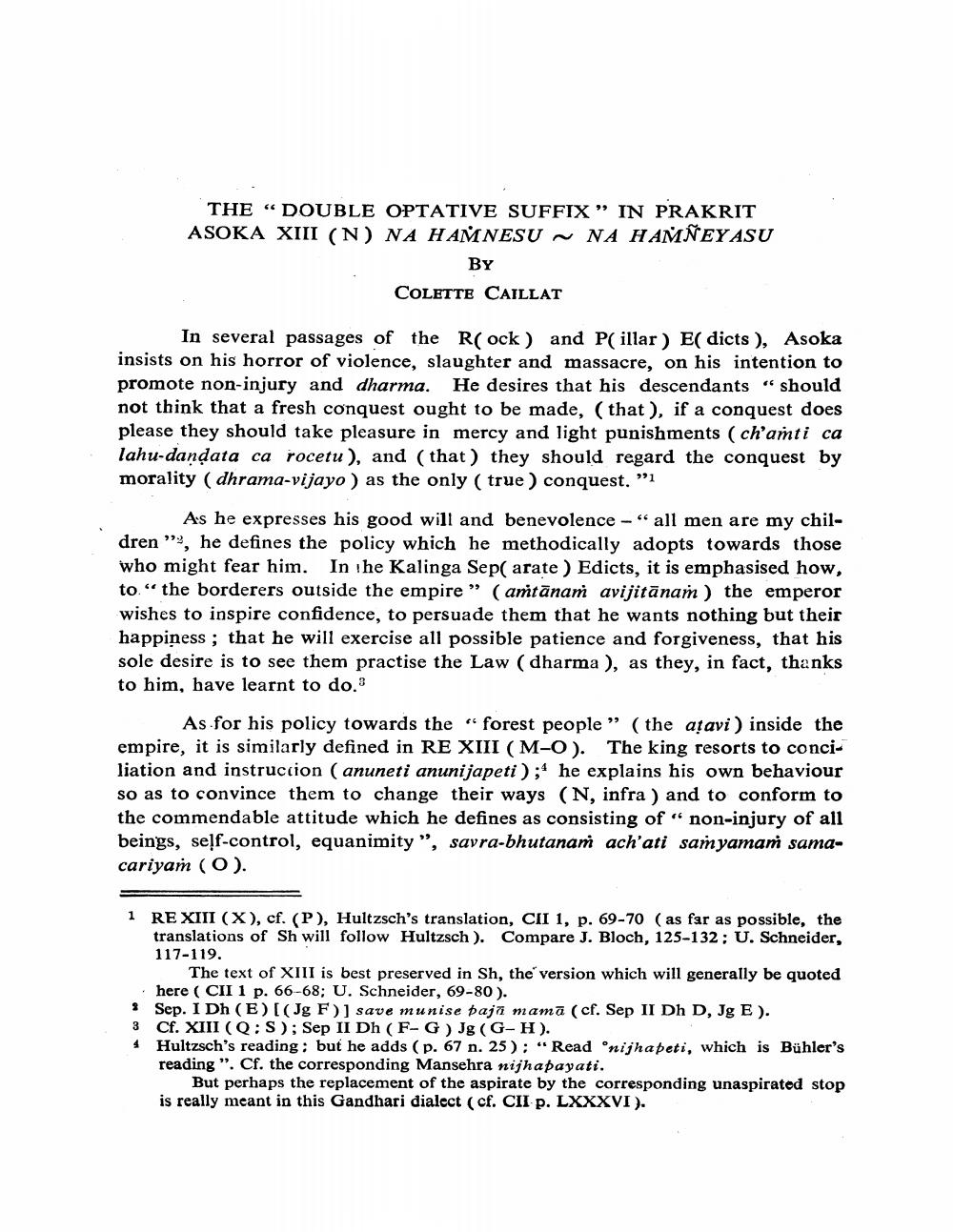Book Title: Double Optative Suffix In Prakrit Asoka XIII Na Hamnesu Na Hamneyasu Author(s): Colette Caillat Publisher: Colette Caillat View full book textPage 1
________________ THE “DOUBLE OPTATIVE SUFFIX" IN PRAKRIT ASOKA XIII (N) NA HAŇNESU ~ NA HAÑÑEYASU BY COLETTE CAILLAT In several passages of the Rock) and P(illar) E( dicts ), Asoka insists on his horror of violence, slaughter and massacre, on his intention to promote non-injury and dharma. He desires that his descendants “should not think that a fresh conquest ought to be made, (that), if a conquest does please they should take pleasure in mercy and light punishments (ch’amti ca lahu-dandata ca rocetu), and (that) they should regard the conquest by morality (dhrama-vijayo ) as the only (true) conquest.” As he expresses his good will and benevolence - “ all men are my children”, he defines the policy which he methodically adopts towards those who might fear him. In ihe Kalinga Sep( arate ) Edicts, it is emphasised how, to“ the borderers outside the empire" (amtānam avijitānam ) the emperor wishes to inspire confidence, to persuade them that he wants nothing but their happiness; that he will exercise all possible patience and forgiveness, that his sole desire is to see them practise the Law (dharma), as they, in fact, thanks to him, have learnt to do.3 As for his policy towards the “forest people” (the ațavi) inside the empire, it is similarly defined in RE XIII (M-O). The king resorts to conciliation and instruction (anuneti anunijapeti) ;' he explains his own behaviour so as to convince them to change their ways (N, infra ) and to conform to the commendable attitude which he defines as consisting of “non-injury of all beings, self-control, equanimity", savra-bhutanan ach'ati samyamam samacariyam (0) 1 RE XIII (X). cf. (P), Hultzsch's translation, CII 1, p. 69-70 (as far as possible, the translations of Sh will follow Hultzsch). Compare J. Bloch, 125-132: U. Schneider, 117-119. The text of XIII is best preserved in Sh, the version which will generally be quoted here (CII 1 p. 66-68; U. Schneider, 69-80). 3 Sep. I Dh (E) [(Jg F)] save munise pajā mama (cf. Sep II Dh D, Jg E). 3 Cf. XIII (Q:S); Sep II Dh (F-G) Jg (G-H). 4 Hultzsch's reading; but he adds (p. 67 n. 25); "Read 'nijhabeti, which is Bühler's reading ". Cf. the corresponding Mansehra nijhapayati. But perhaps the replacement of the aspirate by the corresponding unaspirated stop is really meant in this Gandhari dialect (cf. CII p. LXXXVI).Page Navigation
1 2 3 4 5 6 7 8 9
